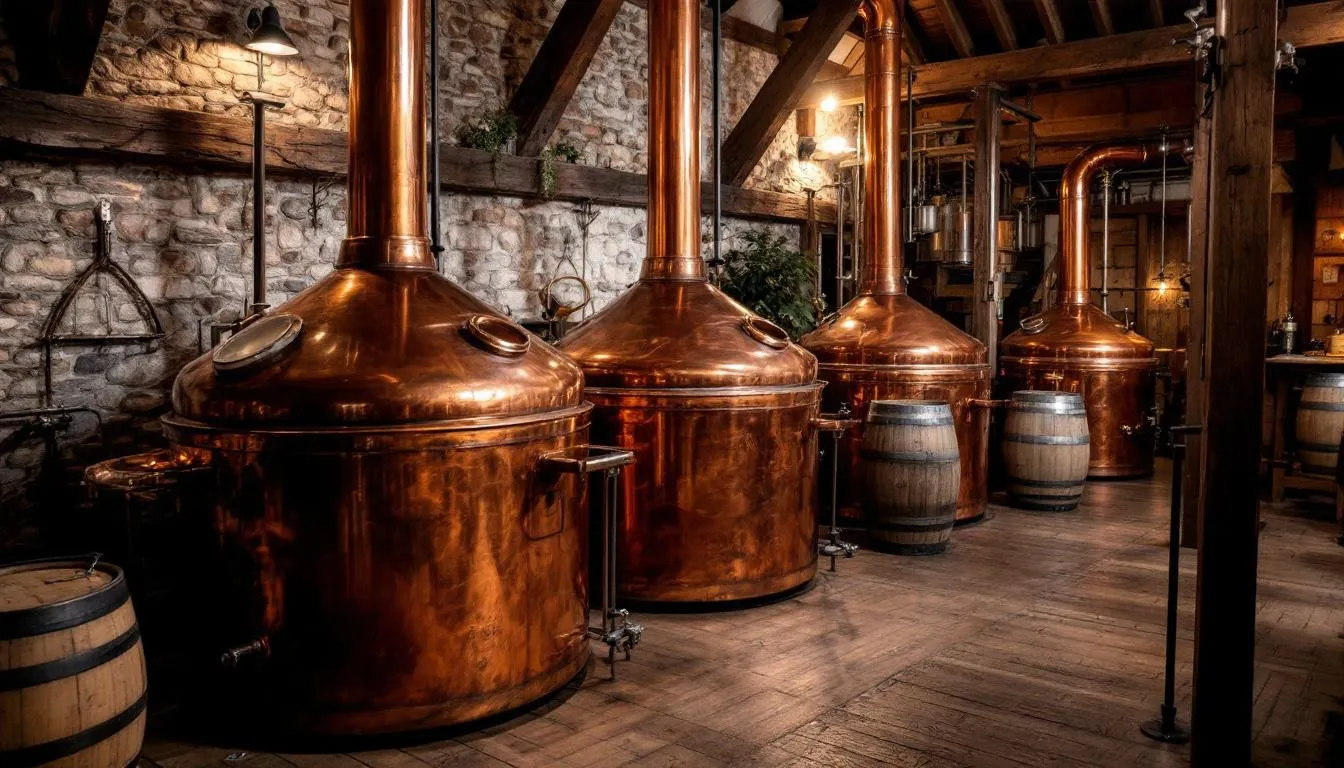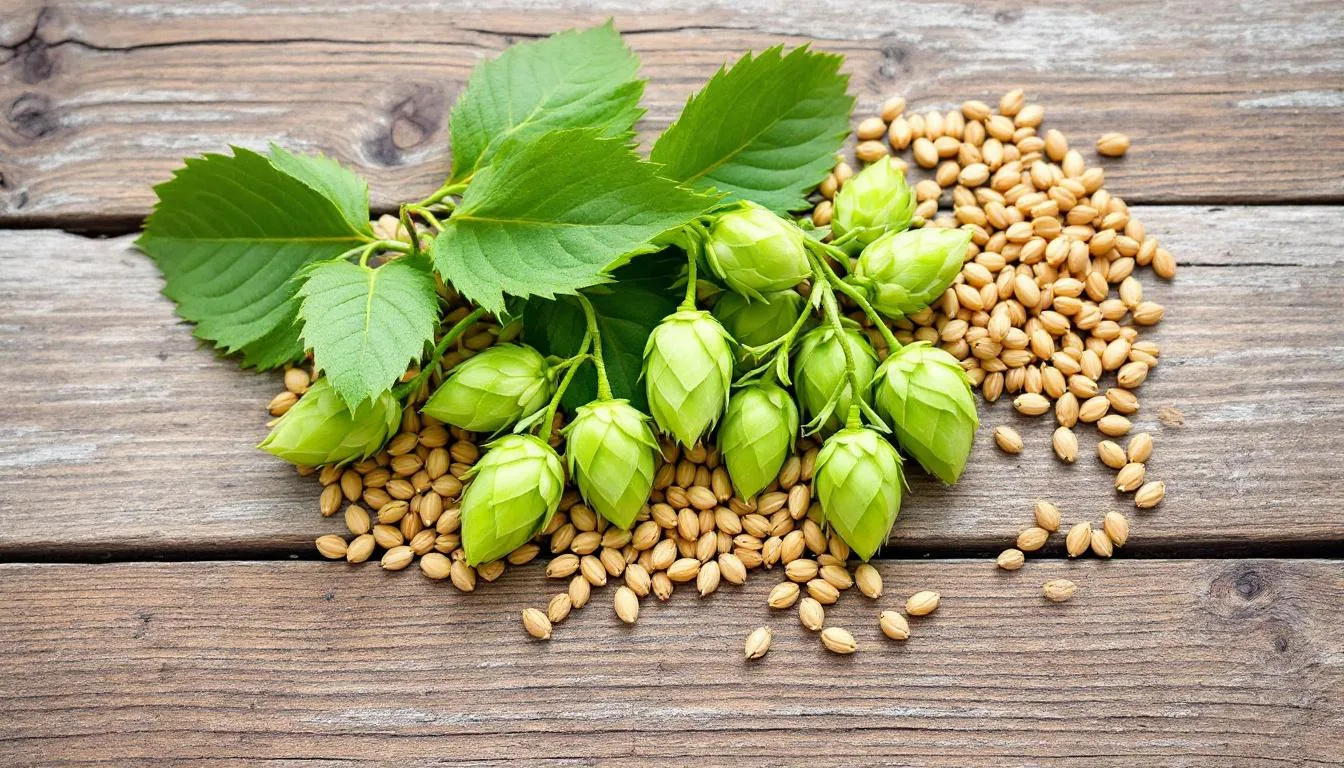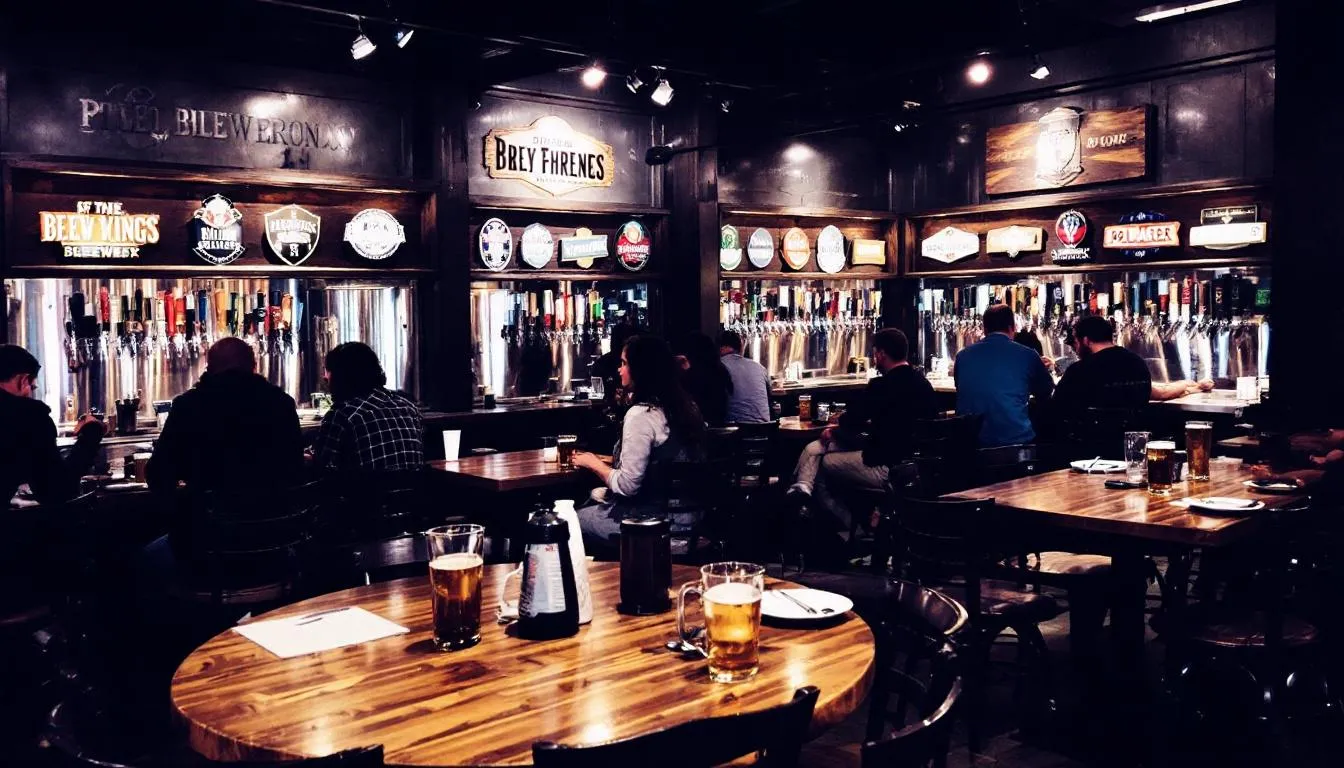In an era where consumers increasingly seek authentic, minimally processed food and drink, the natural brewery movement represents a return to brewing’s roots. Unlike mass-produced lagers and ales that rely on artificial additives and industrial processes, natural breweries prioritize traditional methods, organic ingredients, and environmental sustainability. This comprehensive guide will explore everything you need to know about natural brewing – from ingredients and processes to finding award winning breweries that craft exceptional unfiltered beers.
Whether you’re a passionate beer enthusiast or simply curious about sustainable brewing practices, understanding natural breweries offers insight into how dedication to quality and tradition creates truly outstanding beverages that connect us to brewing’s rich heritage.
What is a Natural Brewery?
A natural brewery represents a commitment to brewing beer using traditional methods, organic ingredients, and minimal technological intervention. These facilities prioritize authenticity over efficiency, creating beers that showcase the pure taste of their ingredients without artificial additives, preservatives, or chemical processing aids.
The core characteristics that define a natural brewery include producing unfiltered and unpasteurized beers that retain their natural cloudiness and complex flavor profiles. These breweries focus on naturally conditioned ales and lagers, allowing carbonation to develop through bottle conditioning or cask conditioning rather than forced carbonation. The brewing process emphasizes longer fermentation periods and temperature control without artificial manipulation.

Sustainability and eco-friendly practices form the heart of natural brewing operations. Many natural breweries source ingredients from local farms within their region, reducing transportation impacts while supporting sustainable agriculture. Water sourcing often involves natural springs or wells, and waste reduction through grain recycling and energy-efficient systems demonstrates their environmental commitment.
Natural breweries differ significantly from commercial mass-production facilities that prioritize consistency and shelf stability over flavor complexity. While large-scale operations use pasteurization, sterile filtration, and chemical stabilizers to ensure product uniformity, natural breweries embrace the variability that comes with traditional methods. This approach results in beers with greater character but requires more skillful brewing and careful quality control.
Natural Brewing Ingredients and Processes
The foundation of any exceptional natural beer lies in carefully selected, minimally processed ingredients. Natural breweries source organic malted barley, wheat, and specialty grains from sustainable farms that avoid pesticides and chemical fertilizers. These grains retain their natural enzymes and complex flavors, contributing to the rich character found in traditionally brewed beers.
Barley serves as the primary base malt, providing the fermentable sugars necessary for alcohol production. Wheat adds protein and creates the smooth mouthfeel characteristic of many traditional styles. Specialty grains like pale ale malt, crystal malts, and roasted barley contribute specific flavors ranging from biscuity sweetness to deep coffee and chocolate notes.
Water quality significantly impacts the final beer taste, and natural breweries often utilize natural springs or wells with distinctive mineral profiles. The mineral content affects everything from mash efficiency to hop extraction and yeast performance. Regions known for their outstanding natural beauty, such as the Scottish Highlands or New Forest, provide water sources that contribute unique terroir to locally produced beers.
Natural hops grown without chemical treatments provide the bitterness, aroma, and preservation qualities essential to beer. Many natural breweries work directly with hop farms to ensure sustainable growing practices and peak freshness. Beyond traditional hops, some breweries incorporate foraged botanical ingredients like spruce tips, dandelion root, and local herbs, creating unique seasonal offerings that reflect their landscape and environment.

Traditional Brewing Methods
Traditional brewing methods form the backbone of natural brewery operations, emphasizing time-honored techniques that preserve ingredient integrity and develop complex flavors naturally. Open fermentation represents one of the most distinctive practices, where beer ferments in vessels exposed to ambient air, allowing natural yeast strains and beneficial microorganisms to contribute to flavor development.
The fermentation process typically occurs at cooler temperatures (15-18°C for ales, 8-12°C for lagers) without artificial temperature manipulation. This extended fermentation period, often lasting weeks rather than days, allows yeast to produce complex esters and phenolic compounds that create the distinctive character found in naturally brewed beers.
Cask conditioning and bottle conditioning provide natural carbonation through secondary fermentation, where residual yeast converts remaining sugars into carbon dioxide. This process creates a gentler carbonation than forced CO2 injection and contributes to the beer’s smooth, creamy texture. Many natural breweries offer both cask ales served from traditional hand pumps and bottle-conditioned beers that continue developing flavor over time.
Temperature-controlled fermentation relies on natural cooling methods or minimal refrigeration, avoiding the harsh temperature shocks that can stress yeast and create off-flavors. Extended aging processes in wooden barrels or tanks allow flavors to mature and integrate, resulting in beers with remarkable depth and complexity.
Types of Natural Beers
Natural breweries produce a diverse range of beer styles, each showcasing traditional brewing methods and pure ingredients. Understanding these styles helps beer enthusiasts appreciate the craftsmanship and heritage behind each pint.
Real ales represent the pinnacle of traditional British brewing, featuring naturally conditioned bitters and milds with alcohol content typically ranging from 3-5% ABV. These beers undergo secondary fermentation in the cask, creating a natural carbonation level that enhances their malty sweetness and hop character. The result is a beer with exceptional balance and a refreshing finish that showcases the brewer’s skill in blending malts and hops.
Wheat beers, including German weiss and Belgian witbier styles, maintain their natural cloudiness from unfiltered wheat proteins and yeast. These beers offer a light, crisp character with subtle spice notes and a smooth palate that makes them perfect for warm weather enjoyment. The protein content creates a fuller mouthfeel despite the relatively low alcohol content.
Pale ales showcase natural hop character through careful selection and timing of hop additions. American and British pale ale styles demonstrate how different hop varieties contribute distinct flavors, from citrusy American hops to earthy, floral English varieties. These beers typically feature a bold hop presence balanced by sufficient malt character to create a harmonious drinking experience.

Stouts and porters represent the darker side of natural brewing, featuring roasted malts that contribute coffee, chocolate, and burnt caramel notes. These rich beers often range from 6-9% ABV and benefit from extended aging that allows their complex flavors to integrate and smooth. The roasted character provides a perfect counterpoint to the beer’s natural sweetness, creating a satisfying balance that warms the palate.
Seasonal specialties allow natural breweries to showcase their creativity and connection to local ingredients. Harvest ales incorporate fresh hops and newly malted grains, while winter warmers feature spices and higher alcohol content for cold weather enjoyment. Spring botanicals celebrate the renewal of the growing season with fresh herbs and flowers that reflect the surrounding woods and countryside.
Benefits of Natural Brewing
Natural brewing offers significant advantages over industrial beer production, delivering enhanced flavor complexity that showcases the artistry and passion of skilled brewers. The unfiltered, unpasteurized processes preserve delicate flavor compounds that would otherwise be stripped away through aggressive processing. This results in beers with greater depth, more interesting aromatic profiles, and the kind of character that keeps beer enthusiasts coming back for more.
The retention of beneficial probiotics and B vitamins from live yeast provides potential health benefits beyond simple refreshment. Unlike mass-produced beers that eliminate all living organisms, naturally conditioned beers maintain active yeast cultures that may support digestive health. The natural fermentation process also preserves water-soluble vitamins that contribute to the beer’s nutritional profile.
Environmental sustainability represents a crucial benefit of natural brewing practices. Reduced chemical usage throughout the brewing process minimizes environmental impact, while local sourcing supports regional agriculture and reduces transportation-related emissions. Many natural breweries implement comprehensive sustainability programs, from renewable energy usage to waste reduction initiatives that demonstrate their commitment to environmental stewardship.
Supporting local agriculture through ingredient sourcing helps maintain traditional farming methods and preserves agricultural diversity. When breweries purchase grains and hops from nearby farms, they create economic incentives for sustainable farming practices and help maintain the rural landscape that provides such outstanding natural beauty.
The authentic beer experiences created by natural breweries connect drinkers to brewing heritage and tradition. Each sip tells a story of careful craftsmanship, quality ingredients, and dedication to preserving time-honored methods. This connection to tradition creates a more meaningful drinking experience that goes beyond simple refreshment.
Finding and Visiting Natural Breweries
Natural breweries flourish in regions blessed with outstanding natural beauty and access to quality ingredients. Key areas include the New Forest with its pristine water sources, Wales with its hop-growing tradition, the Scottish Highlands known for exceptional whisky and beer production, and rural England where traditional brewing methods have been preserved for generations.
When planning brewery visits, most natural breweries offer comprehensive tour experiences that showcase their grain-to-glass processes. These educational tours typically include visits to the mash tun, fermentation vessels, and conditioning tanks, allowing visitors to understand how traditional methods create exceptional beers. Knowledgeable guides explain the brewing process while highlighting what makes natural brewing unique.
Taproom offerings provide the best way to experience fresh beers directly from the source. Most natural breweries feature rotating selections of seasonal releases alongside their core range, offering visitors the chance to sample beers that may never be available in bottles or cans. Local food pairings often complement the beer selection, featuring ingredients sourced from the same region as the brewery’s raw materials.

Bottle shops and direct sales allow visitors to take home their favorite discoveries. Many breweries offer 330ml cans and 440ml bottles in mixed cases, making it easy to explore their complete collection. Some breweries also provide 750ml bottles of special releases or barrel-aged beers that showcase their most ambitious brewing projects.
Certification labels help identify truly natural breweries committed to authentic practices. Look for organic certification, which ensures all ingredients meet strict standards for sustainable production. Vegan certification indicates no animal-derived fining agents were used, while natural brewing standards (though not formally regulated) signal a commitment to traditional methods.
What to Expect During Brewery Visits
Most natural breweries operate scheduled tours on Saturday and Sunday, with advance booking often required due to limited group sizes. Tours typically last 60-90 minutes and include detailed explanations of each brewing step, from grain milling through packaging. The intimate scale of most natural brewery operations allows for personal interaction with brewers who are passionate about sharing their craft.
Complimentary tasting flights usually feature 3-4 samples of 1/3 pint each, allowing visitors to experience the brewery’s range without overwhelming the palate. These tastings often progress from lighter to stronger beers, with expert guidance on flavor characteristics and brewing techniques. Friday afternoon tours sometimes include additional samples of experimental or limited-release beers.
Take-home bottles and brewery merchandise provide lasting mementos of the visit. Many breweries offer exclusive bottles only available on-site, along with branded glassware, clothing, and accessories. Some also sell brewing ingredients or equipment for home brewers inspired to try natural brewing methods themselves.
Educational sessions about natural brewing techniques and ingredients appeal to both casual beer drinkers and serious enthusiasts. Brewers often discuss their philosophy, ingredient sourcing, and the challenges of maintaining traditional methods in a modern market. These conversations provide valuable insights into the dedication required to create truly exceptional natural beers.
The Natural Brewing Movement
The natural brewing movement represents a revival of pre-industrial brewing methods that gained momentum between 2003-2014 as consumers began seeking more authentic beverage experiences. This period coincided with growing awareness of industrial food production’s limitations and increased interest in locally sourced, minimally processed products.
Craft brewery growth during this era saw many operations expand from small 100-liter vessels housed in modest facilities to sophisticated 4000 square foot operations capable of producing significant volumes while maintaining artisanal character. This growth demonstrated that natural brewing methods could scale successfully while preserving the quality and authenticity that defines the movement.
Consumer demand for authentic, minimally processed beverages continues driving the natural brewing movement forward. Modern drinkers increasingly value transparency in production methods and ingredient sourcing, creating market opportunities for breweries willing to invest in traditional approaches. This demand extends beyond beer to include other fermented beverages and foods produced using similar principles.

Industry challenges center on balancing tradition with modern quality control requirements. Natural breweries must maintain consistency and safety standards while preserving the variability that makes their products unique. This requires exceptional skill and experience, as traditional methods offer less margin for error than highly controlled industrial processes.
Future trends point toward continued innovation within traditional frameworks. Wild fermentation techniques using native yeast strains are gaining popularity, while terroir-driven beers that reflect specific geographic locations attract adventurous drinkers. Zero-waste brewing initiatives align natural brewing’s environmental focus with broader sustainability movements.
The movement also benefits from growing tourism interest in authentic cultural experiences. Brewery tours and tastings provide visitors with direct connections to traditional crafts and local culture, supporting rural economies while preserving brewing heritage for future generations.
As the natural brewery movement continues evolving, it maintains its core commitment to quality, authenticity, and environmental responsibility. Whether you’re enjoying a crisp pale ale in a countryside taproom or sharing a bottle of barrel-aged porter with friends at home, natural brewing offers experiences that honor tradition while embracing innovation. The movement’s success demonstrates that consumers value craftsmanship and are willing to support breweries dedicated to creating exceptional beers through time-honored methods.
For those ready to explore natural brewing, start by visiting local breweries that emphasize traditional methods and sustainable practices. Join brewery tours, sample their offerings, and engage with brewers who can share their passion for authentic beer making. Each visit supports artisans dedicated to preserving brewing heritage while creating the outstanding beers that make natural brewing such a rewarding pursuit.
To stay updated on new brewery openings and seasonal releases, sign up to receive news from your favorite natural breweries and check their websites regularly for special events and limited offerings. Add natural brewery visits to your travel plans and discover how different regions create unique beers that reflect their local terroir and brewing traditions.

Leave a Reply